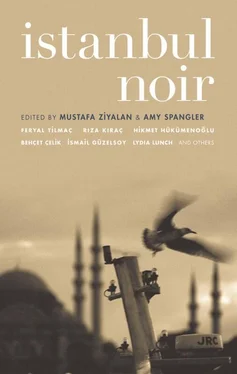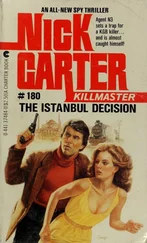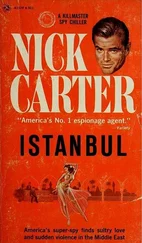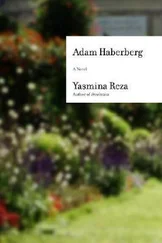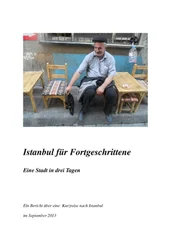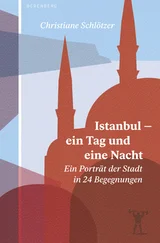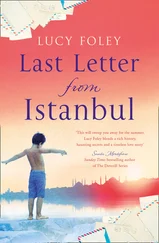I’m on the ferry, sitting next to my friend and that boring guy, who’s still talking. I look outside; everything seems normal. I watch the brunette woman across from me licking her ice cream with gusto, another girl down the row courting the boy next to her. I now realize just how wrapped up I’ve been in whatever it is that boring guy’s been saying. I’ve been hostage to his drivel for a full half hour, the cramp in my stomach growing more and more crippling the longer I listen.
He talks like he’s seen, done, knows it all. He has a small store where he sells religious books. I try to envision the bookstore. It smells of rose oil, and men dressed in şalvar, men from another century.
“The people are waking up, though, slowly but surely,” he says.
“Waking up to what? The benefits of literacy?” I ask.
He leans back and smiles. He’s so sure of himself, it’s repulsive.
“That too,” he replies, “but what I really meant was that they are waking up to the fact that they are living in sin. The most remarkable thing about it is that they can’t see just how immersed in sin they themselves really are, how this sickness has infected them — and so they need to be told. They have to be taught a lesson.” They can’t fathom the consequences of skimpy skirts, he claims.
“What kind of a state is this anyway?” he scoffs. “They tax believers, use the money to open rakı factories, support the meyhane s, ban the headscarf. It’s ridiculous. But now they’re finally being taught a lesson, if only they could open their eyes and see it for what it is.”
He holds up the newspaper: the Gölcük earthquake. Thirty thousand deaths — crushed bodies, crushed hopes, a country in mourning. But for him, the tragedy is a punishment. “Punishment by God,” he says.
So he means to say that tens of thousands of people had forsaken their religion, had reaped what they had sewn. According to him, Istanbul was next — the sinners were being weeded out. This guy built his happiness on the ruins of thousands, on the despair of millions.
“It’s not just about the veil,” he says. “Covering your head is not enough. Every one of those who perished in the quake were people gone astray, people who abandoned their religion.”
I have to get out of here.
The man turns to me, about to deliver the darkest chapter of his sermon. But I stand up, leaving him speechless. He is looking not in my eyes but at the seat of my pants now. Finally, a real savior appears. A girl I know from work. She nods in greeting, and I respond — I’ve never been so happy to see anyone in my entire life.
We reach Yenikapı. Outside, I see men with hands like ropes.
Part IV
Grief & Grievances
Ordinary facts
by Riza Kiraç
4th Levent
At the funeral, together with my brother’s comrades, I raised my left fist into the air, I yelled out slogans, and I sang marches.
When my brother’s corpse, the three bullet holes in his body plugged with cotton balls, was brought into the mosque, I, like everyone else, fell silent. Rather than join the congregation as they performed the funeral namaz , I stood proudly in the corner with the young comrades.
Following the namaz, the coffin was lifted onto shoulders once again and everyone walked to the cemetery. Two neighborhood women stood on either side of my mother, their arms linked in hers, trying to hold her up.
I was walking next to Haldun Abi. Every now and then he’d put his hand on my shoulder, keeping me next to him. Everyone was crying, everyone but me. I just couldn’t. Not because I didn’t love my brother, I loved him dearly. I would have done anything for him. He wasn’t just my brother, he was a father to me too.
Seeing that I wasn’t crying, Haldun Abi said to me, “Your brother would be proud of you, the way you’re standing tall.”
After we’d buried my brother, every day for a month, my mother walked all the way to Sanayi Mahallesi — the “industrial” neighborhood — to visit his grave. For the first two weeks I went with her, so she wouldn’t be alone. And for the next few days after that, I’d go to the cemetery after school and walk back with her. She just stood there in front of his grave, sobbing silently. Every once in a while, she’d reach down with her cracked and callused hands and caress the earth, as if touching her son’s skin.
The only thing I could do to console her was stand by her side. There was nothing else I could do; there was nothing I could say.
For several days after my brother’s funeral, my father came to the house to make sure we had everything we needed and to play host to those who came to offer their condolences. Later, he’d stop by after work and sit with us. We hardly spoke a word. Eventually, my father would get up and go, leaving us and our silence behind for his new, peaceful home, his urban, educated wife, and my stepsister.
The neighbors’ daughters would come over and light the furnace, sweep the house, cook us some food, and then go home. If it hadn’t been for them, it never would’ve occurred to my mother or me to light the furnace, or to eat, or to take care of any other trivial daily necessities. Those bites of food that we reluctantly put in our mouths at the dinner table remained stuck in our throats, day and night.
Once it was dark out and we’d turned the house lights on, we’d sometimes hear gunshots coming from down by the streams that flowed toward Kâğıthane. When the sounds drew closer, to just a few streets over, I’d switch off the lights and sit my mother down on the floor.
The following day there would be another funeral, this time in Gültepe, or Yahya Kemal, or Çeliktepe. Again left fists would be raised and marches would be sung, or a crowd proclaiming Allahuekber would rain curses down upon the Communists.
One morning about two months after my brother’s death, I went to wake my mother up and I found her dead.
We buried her next to my brother. I stood before their graves and looked at the people around me, all of them poor, all of them hopeless, all of them angry, and all of them sick of what was happening — whatever it was.
There was no way I could stay in the house alone. How could an eleven-year-old boy live on his own in a rickety shanty?
We emptied out the house, gave our stuff to the neighbors. All I had left was a bird cage and a pair of canaries flitting around inside it. My father didn’t want the birds; he thought they brought bad luck. I placed the cage on my lap and sat in the center of the living room. My father gave in. We walked from the steep hill of Yahya Kemal to the Gültepe bus stop, the first stop of the line. There wasn’t a bus yet, so we waited. The bus eventually came, and we got on.
While everyone else was going back to their shanties after work, I was headed for a new home, an apartment. I was leaving behind the place where I had been born, the graves of my brother and mother, for another neighborhood, another street, another life, the home of a woman and her daughter, neither of whom I knew. My father was carrying two small plastic sacks and my school bag, and I was carrying a cage with two canaries flapping around like crazy, frightened by all the noise.
The bus arrived at the Neyir stop, which lies at the intersection leading to Büyükdere Avenue. Some people called this the factory stop; some just called it Neyir after the textile factory on the corner.
We were listening to the news broadcast on the bus driver’s transistor radio. It was more like the newscaster was reading a list of names: those who’d died, those who’d been arrested; the prime minister, ministers of state, soldiers, the president...
Читать дальше
